#ivan the terrible part II
Text

It's morbin time
#em0hamlet is allowed to speak and everyone sighs#ivan the terrible#ivan the terrible 1958#ivan the terrible part ii#movies#40s movies#haha funny
2 notes
·
View notes
Text




Ivan the Terrible Part II: The Boyars’ Plot, Sergei Eisenstein, 1958.
4 notes
·
View notes
Photo


Nikolay Cherkasov in Ivan the Terrible, Part I
Nikolay Cherkasov in the color sequence of Ivan the Terrible, Part II
Ivan the Terrible, Parts I and II (Sergei Eisenstein, 1945-46)
Cast: Nikolay Cherkasov, Lyudmila Tselikovskaya, Serafima Birman, Mikhail Nazvanov, Mikhail Zharov, Amvrosi Buchma, Mikhail Kuznetsov, Pavel Kadochnikov, Andrei Abrikasov, Vsevolod Pudovkin, Vladimir Balashov, Aleksandr Mgebrov, Pavel Massalsky. Screenplay: Sergei Eisenstein. Cinematography: Andrei Moskvin, Eduard Tisse. Production design: Iosif Shpinel, Sergei Eisenstein. Costume design: Leonid Naumov, M. Safonova. Music: Sergei Prokofiev.
David Thomson has made a suggestion that a better film epic could be made of the life of Sergei Eisenstein than the one that was made about the life of John Reed -- i.e., Warren Beatty's Reds (1981). In fact, Eisenstein's life was so crowded with artistic and political drama that it would probably have to be an HBO miniseries like Game of Thrones (which is not a bad subtitle for Ivan the Terrible, come to think of it). The drama surrounding Ivan the Terrible alone would be enough for a whole season's episode, with Eisenstein struggling to bring his proposed three-installment film about Stalin's favorite czar to the screen while at the same time dealing with the lethal whims of the dictator himself. After Part I of Ivan the Terrible was released to great acclaim in 1945, including a Stalin Prize from the hands of the man himself, Stalin soured on the project: The mad frenzy of Ivan in Part II cut too close to the bone and it was not released until 1958 -- five years after Stalin's death and ten years after Eisenstein's. Part III had begun filming but was canceled, and what existed of it, except for some stills and scraps, was destroyed. After all this Sturm und Drang, it would be nice to conclude, as some critics have done, that Ivan the Terrible is one of the masterpieces of world cinema. But I can't go that far. It seems to me a great directorial folly, akin to Heaven's Gate (Michael Cimino, 1980) in its directorial excesses, its indulgence in style for style's sake. That the style is immensely entertaining in its artistic wrong-headedness pushes Ivan the Terrible in the direction of camp, a world's fair exhibition of stained-glass attitudes, early silent film poses, great garish sets, costumes that make even the hairiest 16th-century Russians look like drag queens, and in Part II there's a sequence in the most lurid color this side of some of the ballet sequences in MGM musicals of the 1950s. The first time we see Sigismond (Pavel Massalsky), the king of Poland, in Part II, he's sprawled across the throne in a position that almost screams for a sign proclaiming "Careless Decadence," and really looks extremely uncomfortable. Ivan's enemy, Archbishop Philip (Andrei Abrikasov), swans about in a billowing cloak that has no known sartorial or clerical necessity, and which allows Ivan (Nikolay Cherkasov) to forestall his exit by simply placing a foot on it. When Philip does manage to leave, the cloak raises a cloud of dust that suggests Ivan needs to liquidate the housekeeping staff. The collection of poses in Ivan the Terrible is balletic and operatic in the worst senses of the words, but the film is also watchable for all those reasons. There are some redeeming values, of course. It's a window into the mind of the Stalinist Soviet Union, both in what it approved and what it banned. It has a distinguished score by Prokofiev, though unfortunately muddied by poor sound reproduction -- in restoring the film, it's too bad that as much attention wasn't paid to providing a new music soundtrack as to cleaning up the images. Visually, it's fascinating, even when the visuals are absurd.
4 notes
·
View notes
Text
Ivan the Terrible Part II: The Boyars' Plot on Letterboxd
#Ivan the Terrible Part II: The Boyars' Plot#january#movie#letterboxd#criterion challenger 2024#film school drop outs weeklly challenge 2024
0 notes
Text
Ep8 "What Can The Damned Really Say To The Damned" rewatch thoughts (Part 1)
On my third rewatch of the first episode of season 2, I noticed a ton more than I had before. Whether that's because it was on a brighter tv screen, or just that my initial buzz had stopped overloading my cognitive functions, who knows.
In any case, here's my first 10 things I missed!
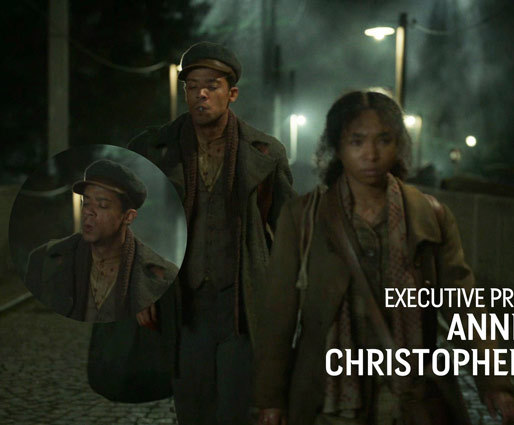
Just after the massacre of soldiers at the checkpoint - Louis spits something out as they walk away. Did he also help kill them? Is that a tooth or something? I love the idea that Louis is doing a lot more human hunting that he ever lets on...

2. “Or is it the sleep of an infant? Tabula rasa” - I had to look up this term because I'd not heard it before, but it's roughly the philosophical idea that babies’ minds are born as a blank slate. (Wikipedia)
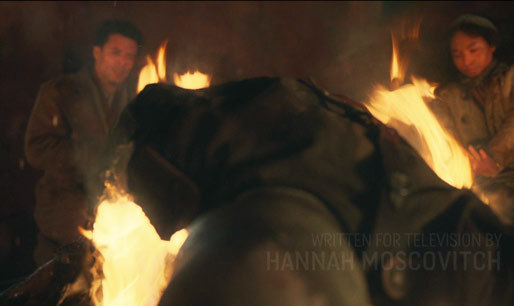
3. Just before Louis complains that he’s cold, you can see that the bonfire is using a dead soldier as fuel. Additionally, he's talking about his refusal to burn Lestat as they huddle around it (nice touch, sicko writers!).
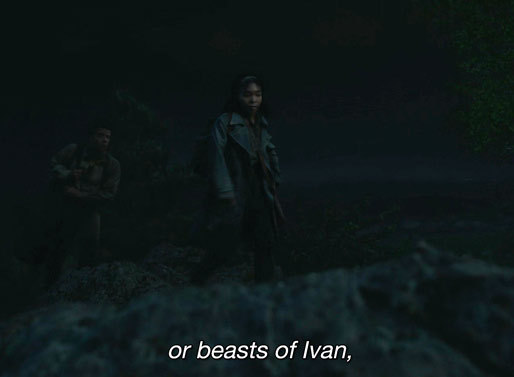
4. Obviously I knew that the "Huns" were German soldiers, but I wasn't sure what “Beasts of Ivan” was referring to... Russian forces? Or Ivan the Terrible (Treblinka guard)? TBH, even after googling, I'm still not entirely sure.
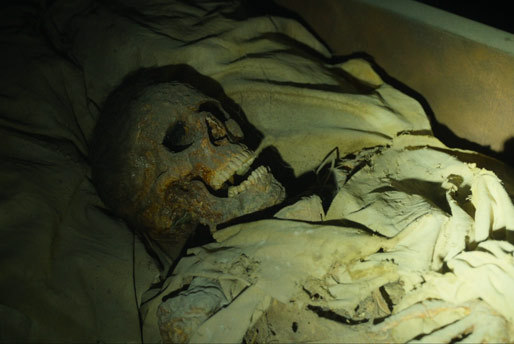
5. Oh god the skeletons of the vampires they discover - Louis and Claudia don’t know to scatter the ashes so their souls are still likely trapped in there?? 😭 (See also: Daciana after the fire…)
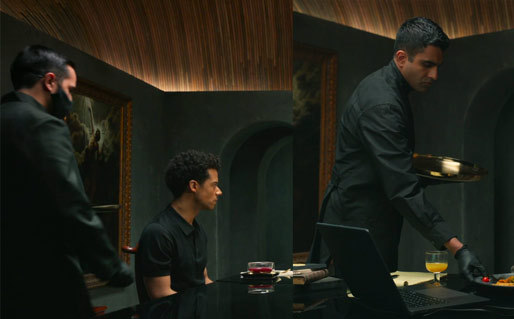
6. The Dubai staff member taking Louis’s blood dish away is wearing a face mask and gloves but Real Rashid is wearing gloves but no mask… Who do we know that did that in season 1, eh?? 👀
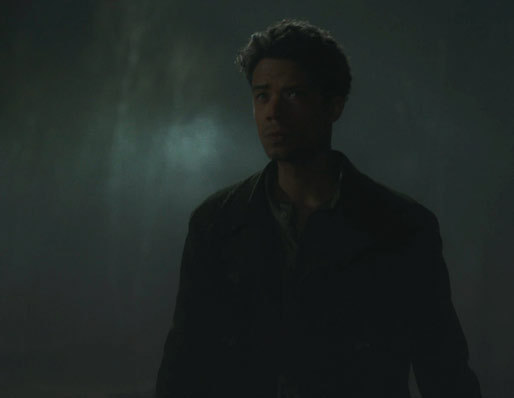
7. Now, this might not be anything but I thought it was interesting that you can see Louis’s breath in the sequence with Hallucistat (whose breath you can also see). So does that mean he's fed recently to be warm enough to do so? There was a great story on the Truest Blood podcast where the actors talked about needing to suck on ice cubes so that their breath didn't show up on camera, and that detail really stuck with me.
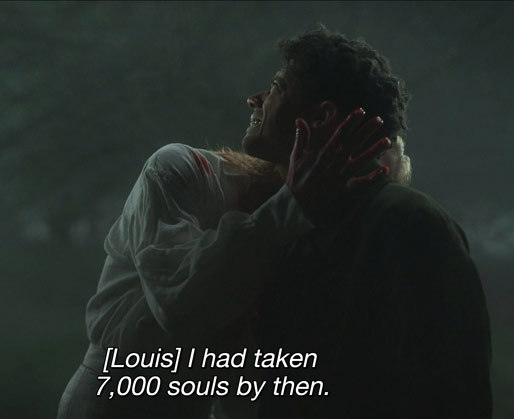
8. Louis says “I had taken 7,000 souls by then.” Ok, let's do some maths - 7,000 divided by 35 years is 200 per year, or 3.5 per week. That's roughly one murder every other day, which seems like a lot for someone claiming to be a vegetarian?? Like, was he killing several a night in the early years with Lestat (the "blood-drunken night in Baton Rogue", for instance), and for the past several years with Claudia? Sure, we see him bite a rat here, but he's clearly killing more than he wants to admit to himself...
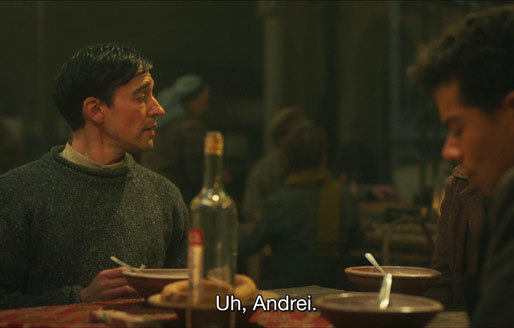
9. The little boy that Morgan bribes with a cigarette to take Claudia away from adult conversation - his name is Andrei. Book readers may remember that this was Armand's given human name. (I don't think it means anything, I just think it's a nice touch from the writers, and they might change this in the show to be something more appropriate to his background)
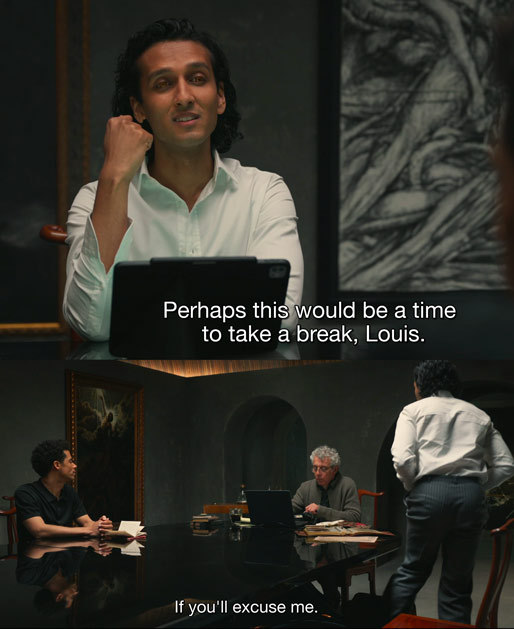
10. After Louis remembers that Emilia mentioned about the woods after Claudia left, Armand suggests Louis takes a break. Daniel then goes on a rant to Real Rashid, ending with “You I can fucking break!” Louis dismisses Rashid, but then then Armand immediately follows him out of the room. What was Armand following him for? What was he saying to Rashid?
Part II coming up! Let me know in the Notes if you also missed any of these...
#interview with the vampire#iwtv#iwtv s2#iwtv spoilers#louis de pointe du lac#claudia de pointe du lac#the vampire armand#real rashid#daniel molloy
92 notes
·
View notes
Text
Katelyn the Fire Fist used to be Katelyn Anchorage III, the only daughter of a working class family with five sons, named for her mother Katelyn II (hereon referred to as Mama Katelyn).
Her father died before the birth of her youngest brother, and ever since then she had wanted to be a guard to help protect and provide for her family. Her mother and older brothers always encouraged her and worked hard to help pay for the gear she'd need for the academy. They were all very close-knit until Katelyn was selected for the Jury.
Her older brothers Keiran and Killian are identical twins about eight years older than her, so identical that the only way to the only way to tell them apart for the longest time was a scar from when Keiran broke his collarbone at seven. Kacey, a shy boy who liked to sit with their mother while she worked, is two years younger than Katelyn. Pretty boy Kenneth is five years younger, and Kyler the baby of the family is about eight years younger. There's a whole sixteen years between the oldest and the youngest of the brothers, so Kyler ended up mostly being raised by the twins while Mama Katelyn recovered and went back to work. Katelyn once called the twins dad and they shut it down real quick. The majority of their stories about dad comes from them since Mama Katelyn doesn't talk about him all that much.
Mama Katelyn collects stories. Her work is fairly repetitive, so she and her fellows often tell stories and share gossip to fend off the boredom. She's so opposed to Katelyn joining the Jury because she's heard such terrible things about them, and sure some of them are bound to be rumors, but how can she not be wary after hearing about Janus terrorizing the Tu'lan countryside or Ivan cursing a village with winter year-round? But she doesn't want to discourage Katelyn into quitting because, well, isn't joining the Jury of Nine every guard's dream? Instead, she quietly confides her worries in Keiran.
Keiran, now terrified his baby sister is going to be made into a monster at the behest of the church and Lord, starts a massive argument to try to convince Katelyn she's making a mistake by not passing on the invitation. Katelyn blows up instead of listening to what he's trying to say and it gets really out of hand. She ends up completely cutting ties with her family and completely devoting herself to her duties as a Juror.
They parted on such bad terms that after she's left the Jury she fears she ruined her chances of speaking to them again for no good reason since she didn't even stay with the whole reason she left in the first place. She's incredibly hesitant to reconnect in case they hate her, or worse fear her, and never reaches out. She talks about her family so rarely that the only reason anyone even knows she has one is because one time she got a little too tipsy around the campfire and started going on about how proud she is of them.
Imagine her surprise when she runs into one of her brothers completely on accident someday post-Irene Dimension and learns that Kenneth is now all scarred up and missing a leg, little Kyler is running the O'khasian citizens' resistance under Tu'la rule, shy Kacey has gone off and become a mercenary, Mama Katelyn is running a shelter named after her daughter, Killian's running a pirate crew, and Keiran's been searching all of Ru'aun for her for years. She's been just missing three of them for years! Killian's even been weighing anchor in Phoenix Drop and Meteli for ages!
Does she ever really reconnect with her family? Does she recognize her brothers? Do the younger ones recognize her? Does she ever see her mother face to face again?
#minecraft diaries#mcd#aphmau minecraft diaries#mcd rewrite#dropofsunlightextras#aphblr#aphverse#aphmau mcd#katelyn the firefist#katelyn anchorage iii#keiran anchorage#killian anchorage#katelyn anchorage ii#kyler anchorage#kacey anchorage#kenneth anchorage
29 notes
·
View notes
Note
I read through all your posts about Alysanne Targaryen as Maegor's daughter and am now in a rabbit hole. Thank you. I've been thinking about Maegor's wives and which one of Henry VIII's wives they represent. Ceryse is Cathrine of Aragon and Alys is Anne Boleyn. The others are hard to pin for me since there isn't a lot. What do you think? Would Maegor's reign have been more interesting if his marriages had more similarities to those of Henry VIII?
I think this is where we run into a number of problems regarding the way GRRM wrote Fire & Blood specifically and the way he setup Westeros more generally.
For one, the fairly homogenized nature of southron culture as well as the oversimplification of religious institutions and history means you can't quite get the same dynamism as from real life European history, with its dizzying array of languages, cultures, cuisines, fashions, etc., to mention nothing of the then-ongoing Protestant Reformation. I suppose GRRM could have had Maegor convert to the Old Gods a la Julian (II) the Apostate or the Drowned God (you just know the Ironborn are the one race on the surface of Planetos that would say King Maegor the Good with a completely straight face) or even R'hllor, which would be the best choice in terms of worldbuilding opportunities in my opinion.
Moving on, we run into a handful of problems with Maegor specifically, one of them being the length of his reign. Look, while I can't deny Maegor ruling for 6 years and 66 days is incredibly cheeky, it also isn't anywhere close to Henry VIII's 36 years as king. With so little room timeline-wise, there isn't a lot of flexibility when it comes to telling new stories and fleshing out preexisting ones and all that is before you factor in Maegor himself.
I won't hold back. For all GRRM's talk of moral ambiguity, the human heart in conflict with itself, good men who were bad kings and bad men who were good kings, etc., his Targaryen monarchs are, for the most part, numbingly one-note. Aegon I is a literal enigma, Aenys is weak, Maegor cruel, Viserys I a party animal, Aegon II and Rhaenyra mirror-images of each other in their disqualifying vices, etc. As I've written before with my post reimagining Maegor as more of a Ivan (IV) the Terrible figure there was room to make him a genuinely controversial figure of historiography but instead GRRM doubled down on sensationalism and apathy-inducing slasher porn for lack of a better word. The fact Maegor is also the first and last of Visenya's line just adds more salt to the wound but that's part of GRRM's more general (and for me personally, vexing) habit of keeping family trees incredibly small.
(I do recall another alternative someone once brought up to the late Steven Attewell. Namely, turning Maegor into the Westerosi version of Macbeth by way of Der Untergang.)
This brings me to my semifinal point. GRRM didn't have to write Fire & Blood as Procopius' Secret History on steroids with a dash of Suetonius' Lives of Twelve Caesars and I, Claudius (the entire Saera episode is practically lifted wholesale from the scandal that envelops Augustus' daughter, Julia) but he did, which is doubly disappointing because not only does the final product suck quality-wise as a result but also because there were so many other avenues available to him.
He could have written Fire & Blood as a proper history (with less focus on the sex lives of teenage girls for one) or as a mirror for princes or as a dialogue between two characters or even as a character study. You can even see GRRM struggling with the constraints imposed by his use of Gyldayn in certain sections like the death of Maelor and the entire Hour of the Wolf episode, where you get reams of dialogue and characterization as well as more traditional narrative trappings like build-up, mood setting, etc.
Now, to answer your actual question (lol), I don't think any of Henry VIII's other wives map well onto Maegor's. Tyanna is, more or less, his female counterpart in terms of cruelty and zero redeeming features and entirely a fantasy construct. Elinor and Jeyne are both married to Maegor for only a year (with poor Jeyne dying in childbirth because Jeyne Westerlings, like the Brackens, Peakes, and Florents, cannot catch a break in Westeros) and before said marriage takes place neither appears on the page. As for Rhaena, well, credit where its due, she was a rare (and unexpected) highlight of Fire & Blood.
Thanks for the question, anon
#maegor the cruel#house targaryen#asoiaf criticism#asoiaf meta#valyrianscrolls#asoiaf#asoiaf themes#maegor targaryen#fire and blood#volume 1
37 notes
·
View notes
Text
THIS DAY IN GAY HISTORY
based on: The White Crane Institute's 'Gay Wisdom', Gay Birthdays, Gay For Today, Famous GLBT, glbt-Gay Encylopedia, Today in Gay History, Wikipedia, and more …
August 25



1530 – Ivan IV – The Terrible – was Grand Prince of Moscow from 1533 until his death (d.1584). His long reign saw the conquest of the Khanates of Kazan, Astrakhan, and Siberia, transforming Russia into geographically vast multiethnic and multiconfessional state.Ivan managed countless changes in the progression from a medieval nation state to an empire and emerging regional power, and became the first ruler to be crowned as Tsar of All Russia.
Ivan was a patron of the arts and himself a poet and composer of considerable talent. His Orthodox liturgical hymn, "Stichiron No. 1 in Honor of St. Peter", and fragments of his letters were put into music by Soviet composer Rodion Shchedrin.
Although he is better known in English as Ivan the Terrible, this is probably a mistranslation from the Russian: a more accurate term may be "formidable".
His last years alternated between debauchery and religious austerity. He was married no less than seven times. But he was also attracted to young men in female attire. One of the most ruthless chieftains of Ivan's political police, Feodor Basmanov, rose to his high position through performing seductive dances in women's clothes at the tsar's court.
The nineteenth-century poet A. K. Tolstoy (1817-1875) wrote a historical novel, Prince Serebriany (1862), set during the reign of Ivan the Terrible, where he described with great frankness the paradoxical character of Feodor: a capable military commander; the scheming initiator of murderous political purges; the tsar's bed partner; and an effeminate homosexual who discussed in public the cosmetics he used to improve his complexion and hair.


1839 – On this date the famed cowboy writer and editor Bret Harte was born (d.1902). He's best known for his book Outcasts of Poker Flats but he had a penchant for writing about homoerotic couplings, as in his book Tennesee's Partner. The men in that last novel, Tennessee and Partner, acted so strangely attached that it led to Mark Twain's consternation: "Why would men act this way? Why would they pair with each other rather than to other women?" Why indeed?
Harte's other "men only" homoerotic loving partnerships can be found in his "Notes by Flood and Field," "Captain Jim's Friend," "Uncle Jim and Uncle Billy," and "In the Tules" a story that one scholar called "the most blatantly homoerotic story Harte ever wrote." Harte wrote it while living in England while that country was being rocked by the Oscar Wilde trials. So he may have been so inspired.
Harte also published Charles Warren Stoddard's now classic, overtly homoerotic novel South Sea Idylls — a book that delighted Walt Whitman with its descriptions of same sex attachment and fidelity.


1845 – Ludwig II (d.1886) is better known for his enthusiastic patronage of Richard Wagner and for his fabulous castles than for his conduct of affairs of state. His withdrawal from public life, perhaps in part due to the impossibility of living openly as a gay man, led to allegations that he was mad, and ultimately to his deposition and death.
Ludwig II of Bavaria was named for his grandfather, King Ludwig I, with whom he shared a birthday, August 25. The two also shared an avid interest in the arts. From his earliest years the younger Ludwig enjoyed drawing, making model buildings, and dressing in costume to act. Upon hearing Richard Wagner's opera Lohengrin for the first time when he was fifteen, Ludwig developed a lifelong passion for the composer's works.
When Ludwig ascended to the throne of Bavaria at the age of eighteen (upon the death of his father, Maximillian II, in 1864), one of his first acts as king was to send for Wagner, for whom he immediately provided a rent-free house and a generous annual stipend. Ludwig not only commissioned Wagner's operas, but also envisioned a glorious theater for the staging of them. This dream would be realized when the Festspielhaus at Bayreuth was built (1872-1876).
Ludwig took great joy in the presence of the composer, upon whom he lavished attention and costly gifts. Whether the two men had a physical relationship is unclear, but of Ludwig's devotion there can be no doubt. Wagner's presence in the Bavarian capital was controversial. Members of the court feared that he might gain undue political influence over the young king, and they were alarmed at the amount of money that Ludwig was spending on him. Wagner left Munich after about a year, but throughout his life he enjoyed the patronage of the king, with whom he exchanged hundreds of affectionate letters over the years.
Ludwig faced serious political and military challenges early in his reign. In 1866 he proposed compromise measures to try to forestall a German civil war. When hostilities broke out, he allied Bavaria with Austria in the Seven Weeks' War. Their forces were defeated, and the following year Ludwig entered into an alliance with the victorious Prussia. With war looming between France and Prussia in 1870, Napoleon III attempted to bring Bavaria over to his side. A patriotic German, Ludwig remained loyal to his ally. Faced with the threat from France, the German states moved toward confederation into a single empire. Ludwig was concerned about the loss of Bavarian independence, but in negotiations with Prussian Chancellor Bismarck he was able to secure a privileged status for Bavaria. He then sent a letter, drafted by Bismarck, to his fellow German princes, urging the political union, which was formally declared in 1871.
The most important romantic friendship of Ludwig's early years was with Prince Paul von Thurn und Taxis. The two young men took pleasure in riding and hiking together in the Bavarian mountains and in reciting poetry to each other. Importantly, Paul shared Ludwig's enthusiasm for Wagner's operas and on one occasion played Lohengrin in an elaborate outdoor nighttime staging of the scene of the knight's arrival in the swan-boat. Ludwig had an obsessive devotion to the handsome Paul but eventually broke with him after hearing rumors that the prince was involved in relationships with women.
Ludwig was in no hurry to marry, but after considerable indecision, he became engaged to his cousin Sophie in January 1867. As their wedding date, August 25, Ludwig's birthday, approached, however, he postponed the ceremony until October 12, the anniversary of both his parents' and grandparents' marriages. After another delay Ludwig broke the engagement and never considered marriage again.
It is not clear at what point Ludwig recognized his homosexuality. His diary, which he kept beginning in 1869, reveals that it was a source of inner turmoil for him. As a Catholic monarch, he felt an obligation to conform to the teachings of the Church, yet he could not deny his nature.
Ludwig developed a deep affection for Richard Hornig, a former officer in the Bavarian army who had become the chief equerry of the royal household. Ludwig gave a lake property to Hornig, whom he described in his diary as the "Beloved of My Soul." The two had frequent quarrels, though, and Hornig eventually married. He nevertheless remained in Ludwig's service almost until the end of the king's life.
Ludwig became infatuated with a young Hungarian actor, Josef Kainz, whom he first saw on stage in 1881. During a brief relationship the king gave him many expensive presents and took him on a trip to Switzerland. Ludwig rather quickly became disenchanted, however, apparently having found Kainz's performances in character in the theater more interesting than the actor himself.

Neuschwanstein Castle
Ludwig's greatest artistic passion beside opera and theater was architecture. Beginning in 1869 he undertook the construction of three extravagant royal residences, one of which, Neuschwanstein castle, begun in 1869 and never completed, is a fairy-tale confection perched high in the Bavarian mountains. The elaborate building projects plunged Ludwig deeply into debt. They also consumed a great deal of his time.
Never extremely interested in affairs of state, he withdrew increasingly to his refuges. There the king organized late-night picnics to which he invited good-looking stable boys and soldiers from the castles. He also gave parties at which the same guests were attired in Turkish-style costumes, at least until some of the handsomest were required to strip and dance. Ludwig had less and less contact with his government ministers, who became concerned by reports of the king's erratic behavior, including experiencing hallucinations and issuing nonsensical orders, as well as his determination to continue building despite his dire financial situation.
In 1886 a group of government leaders arranged for a psychiatrist, Bernhard von Gudden, to declare Ludwig insane even though he had not examined the king. Since incapacitation was grounds for the removal of the monarch under Bavarian law, they had Ludwig arrested and taken to Castle Berg on Lake Starnberg.
Only a few days later Ludwig was dead. He and Gudden went out for a walk on the rainy night of June 13, 1886 and never returned. The following morning their bodies were recovered from the lake. The circumstances of the men's deaths remain a mystery. It has been theorized that Ludwig committed suicide and Gudden tried to save him or that Ludwig planned to escape and Gudden died attempting to stop him.
The people of Bavaria mourned the death of Ludwig, who had remained extremely popular. Thousands, many of them weeping, lined the route as an enormous procession bore the king's body to church for the funeral mass. On learning of Ludwig's death, his devoted cousin the Empress Elizabeth of Austria declared, "The King was not mad; he was just an eccentric living in a world of dreams. They might have treated him more gently, and thus perhaps spared him so terrible an end."


1876 – The Sacramento Daily Union reports that Ah Lee and Ah Joe both plead not guilty in California for “crimes against nature.” Ah Joe is sentence to three years in prison. Ah Lee’s fate is unknown.


1918 – Throughout the 1960s, Leonard Bernstein (d.1990) was undoubtedly the most visible proponent of classical music in American culture. Through his outgoing personality and resourceful uses of the media, particularly television, Bernstein introduced "highbrow" culture into the homes of middle America, while also defending rock and roll as "real" music and espousing radical causes. Given his overwhelming celebrity and acclaim as a composer, conductor, pianist, and lecturer, the meteoric career of this son of Russian Jewish immigrants would seem to exemplify the all-American success story; yet, for most of his life, the specter of the closet lurked threateningly behind the glamorous and often brash public image of Leonard Bernstein.
Born in Lawrence, Massachusetts, on August 25, 1918, Bernstein studied at Harvard University, the Curtis Institute, and the Berkshire Music Center at Tanglewood, where he came to the attention of maestro Serge Koussevitzky, who mentored the early stages of his career.
In 1944, the twenty-six-year-old Bernstein was called on at the last minute to replace maestro Bruno Walter in conducting the New York Philharmonic Orchestra. The public notice and acclaim that resulted from this performance thrust the young musician into the limelight, and he was soon in demand as a conductor and teacher throughout the United States and Europe.
In 1958, Bernstein was appointed musical director and chief conductor of the New York Philharmonic, a post he retained until 1969, and he remained conductor laureate until his death. In 1959, at the height of the Cold War, he traveled with the Philharmonic to the Soviet Union, where the orchestra performed his Second Symphony, entitled The Age of Anxiety after the W. H. Auden poem that inspired it, an apt work for the given historical moment.
Bernstein simultaneously pursued a very diverse career as a composer, creating "serious" pieces, including three symphonies, three ballets, the choral work Chichester Psalms (1965), and Mass (1971), a theater piece commissioned for the opening of the Kennedy Center for the Performing Arts in Washington, D. C. His best known works, however, are those he wrote for the Broadway musical stage, including On the Town (1944), Wonderful Town (1953), Candide (1956; revised as an opera, 1982), and the highly popular West Side Story (1957).
By the early 1960s, Bernstein was one of the most prominent cultural figures in American society. Through his association with the Kennedy family and his media appearances, he exerted a tremendous influence in presenting the fine arts to the American public in a manner free from the social snobbery with which they are so often associated. He was one of the first orchestral conductors to utilize the relatively new medium of television, and his frequent appearances familiarized the general public with his flamboyant style and extravagant gestures at the podium, mannerisms that infuriated many "purists" but established him as a familiar figure in many American living rooms. Through his televised educational series of Young People's Concerts (1958-1972), he demonstrated that classical music was not just accessible to the masses but that it could even be fun.
Unlike most classical musicians, Bernstein was outspoken in his political views, particularly on the Vietnam War and civil rights issues. His Mass disturbed many critics and listeners with its unambiguous anti-war sentiments. So did some of his well-intentioned but nonetheless eccentric gestures, such as inviting members of the Black Panther party, a radical group of African-American militants, to his cocktail parties to mingle with socialites and other representatives of the cultural elite.
In spite of Bernstein's public avowal of unpopular causes, he was, for much of his career, unwilling to risk exposure of his homosexuality. Indeed, the social mores of the 1950s and 1960s were such that a revelation of homosexuality would undoubtedly have destroyed the celebrity and influence he had attained. In 1951, Bernstein married the Chilean actress Felicia Montealegre, with whom he had three children. Bernstein nonetheless engaged in a number of homosexual relationships over the years. In the mid-1970s, the couple separated, and Bernstein attempted to live an openly gay life with Tom Cochran, who had been his lover since 1971. A year later, he returned to his wife, who was by this time terminally ill. After Montealegre's death in 1978, Bernstein became increasingly open about his gayness; even so, as his daughter observed after his death, his need for a "middle-class sensibility" kept him from living a completely gay life.
Bernstein's final major composition, the opera A Quiet Place (1983), positions a bisexual male character, who functions as the mediator between the other, more conflicted characters, at the center of the action. The opera's message is one of reconciliation and acceptance among all people.
Although increasingly in ill health in his final years, Bernstein continued to perform and record until his death from a heart attack on October 14, 1990. As a conductor, he had a vast repertoire and recorded frequently, often in collaboration with the greatest singers and solo musicians of the postwar era. As a result, he has left an extensive and remarkable legacy of recordings and video performances that will ensure his reputation as an intelligent and enthusiastic conductor, composer, and musician for generations to come.


1929 – A respected member of the French literary establishment, Dominique Fernandez has not only won many prestigious literary awards, but in March 2007 he was elected to membership in the venerable Académie française, a significant honor. Inseparable from Fernandez's identities as an academic, historian, novelist, essayist, and travel writer is his identity as a gay man who came of age during the 1950s.
Fernandez did not come out publicly until the 1970s. In his remarkable autobiographical work L'Étoile Rose (The Pink Star, 1978) he has written of the belatedness of his coming out with some regret: "Je songeais . . . à tout ce qui aurait été différent dans ma vie, si, à dix-huit ans, j'avais pris conscience que j'étais gay, au lieu d'un paria." ("I dreamed . . . of everything that would have been different in my life if, when I was eighteen, I had understood that I was gay instead of a pariah.")
The author of dozens of novels, travel memoirs, essays, and works of criticism, Fernandez pioneered the "psychobiography," a literary form that he used to imagine the lives and inner struggles of gay artists in past centuries. He has also explored the experiential gulf between homosexuals who grew up under almost total societal disapproval and those who developed their gay identities after the gay liberation movement made public homosexuality a possibility.
Fernandez was born in the Parisian suburb of Neuilly-sur-Seine on August 25, 1929, the son of a French mother and Franco-Mexican father. His father, Ramon Fernandez, was a prominent biographer and literary critic who ended his career in disgrace when he served on the executive committee of the fascist Parti Populaire Français, collaborating with France's Nazi occupiers. Dominique was fifteen years old when his father died and was deeply affected by the scandal and shame of his father's last years. However, he followed his father into the world of literary academia, passing his baccalauréat in 1946 and entering the École Normale Supérieure in 1950. In 1955 he earned his degree in Italian. In 1968 he was awarded his Ph. D, having written his thesis on gay Italian writer Cesare Parese.
Fernandez married Diane Jacquin de Margerie in 1961; the couple had two children before the marriage ended in 1971. In 1974, Fernandez publicly revealed his homosexuality and published a novel, Porporino, ou les mystères de Naples (translated into English in 1976 as Porporino, or the Secrets of Naples). The novel, about the life of a castrato in eighteenth-century Naples, depicts homosexuality openly.
Dozens of books followed, including L'Étoile Rose, which explored the cross-generational relationship between a middle-aged provincial professor and a younger, post-liberation gay man, and Dans la main de l'ange (In the Angel's Hand, 1982), the bleak story of gay Italian writer and filmmaker Pier Paolo Pasolini, who was murdered by a male prostitute.
Throughout his life, Fernandez has been an avid world traveler. He has recorded his experiences in numerous travel memoirs, documenting his journeys to such diverse destinations as Italy, Portugal, Russia, Syria, Brazil, and Romania. Many of his travel journals are illustrated with photographs made by his longtime companion, architect Ferrante Ferranti.


***********

1939 – Chris Dickerson (born Henri Christophe Dickerson) is a former American professional bodybuilder.
Dickerson was born the youngest of triplets. He studied music and is an accomplished opera singer in addition to his career in athletics.
One of the world's most titled bodybuilders, Dickerson's competitive career spanned thirty years; he was known for both his heavily muscled, symmetrical physique and for his skills on the posing dais. Dickerson first entered bodybuilding competition in 1965 by taking third place at that year's Mr. Long Beach competition. He trained for many of his most important competitions in the 1980s with former Mr. Universe Bill Pearl.
He was the first African-American AAU Mr. America, the oldest and first openly gay winner of the IFBB Mr. Olympia contest at age 43, and one of only two bodybuilders (along with Dexter Jackson) to win titles in both the Mr. Olympia and Masters Olympia competitions.

a not-so-greasy view
During the 1960s, Dickerson did much physique modeling. His 1970's nude work for photographer Jim French is today considered some of the best in an admittedly limited field. Chris appeared in French's hardcover photo essay, Man (1972) and also posed for the photographer ten years later.
He also appeared in porn movies for Colt
Dickerson retired in 1994 and was inducted into the IFBB Hall of Fame in 2000. Today, Dickerson lives in Florida where he continues to train, conduct seminars, and correspond with current athletes.


1958 – Christian LeBlanc is an American actor, best known for his role as Michael Baldwin on The Young and the Restless.
He was born in Fort Bragg, North Carolina, and first played the role of Michael Baldwin on The Young and the Restless from 1991 to 1993, and then resumed the role in 1997. He has been nominated for a Daytime Emmy Award for the role eight times, and won for Outstanding Lead Actor in a Drama Series award in 2005, 2007, and 2009.
He previously starred on another soap opera, As the World Turns, playing Kirk McColl from June 2, 1983, until the summer of 1985.
In 1988, LeBlanc played a police officer in the NBC police drama In the Heat of the Night, a TV version of the acclaimed movie. LeBlanc was featured in eight episodes.
Christian appeared on As The World Turns again as his Y&R character Michael Baldwin on April 4 and 5 of 2005, when the character was crossed over to assist Jack and Carly Snyder in a custody suit.
On June 20, 2021, he revealed on Maurice Benard's podcast State of Mind that he is gay and has been married to his husband for 28 years.


1968 – Alexis Bittar is an American costume jewelry designer, best known for chunky Lucite bangles and collaborations with numerous leading fashion designers. In 2010 he won the CFDA Accessory Designer of the Year award.
Bittar was born on August 25, 1968, in Brooklyn, NY to Bob and Helen Bittar, both university professors and antique collectors. He is of Lebanese descent. At age ten, Bittar began selling flowers from a hand-painted cart near his home in the Bay Ridge neighborhood of Brooklyn. As a teenager, he sold antique jewelry and vintage clothing on St. Mark's Street in New York City. Once, as a birthday present, Bittar's parents purchased him $300.00 worth of vintage jewelry which Bittar used as the seedlings of his nascent commercial operation. While attending the Bronx High School of Science, he discovered the New York club scene, which fueled his interest in fashion and design. During high school, Bittar was also a heavy partier.
Bittar briefly attended State University of New York at Albany, but left after a year. The New York Times reported that after his return to New York, Bittar "plunged" deeper into drugs and the nightclub scene. During this period Bittar was estranged from his parents. The tension between him and his parents was multifaceted; in part it stemmed from his general rebelliousness and in part from his revelation to his parents that he is gay (a revelation which was received poorly at the time). Recognizing the destructive influence they had on his life, Bittar closed the door on drugs and alcohol by the time he was 22. He continued to pursue his interest in jewelry and design; with time and hard work, the rift between him and his parents healed.
Using Lucite and semi-precious stones and metals, Bittar began selling handmade pieces on the streets of Soho. In 1992, Dawn Mello, the fashion director of Bergdorf Goodman agreed to carry his designs, followed by Barneys New York, the Guggenheim Museum, and Saks Fifth Avenue.
In 1999 Bittar launched the first of what would become many collaborations with fashion designers, working with Burberry to make Lucite jewelry featuring the trademark plaid. Subsequent collaborations have included the Cooper-Hewitt Museum, Estee Lauder, Michael Kors, Jason Wu, Jeremy Scott, Michael Angel, and Patricia Field.
Bittar opened his first boutique in New York City in 2004 and expanded to the west coast in 2010. Today there are seven Alexis Bittar boutiques in the US.


1974 – Eric Millegan is an American actor, primarily known for his work on the Fox series Bones in which he played Dr. Zack Addy. Millegan is openly gay, and was out before being cast in the role.
Eric Millegan was born in Hackettstown, New Jersey, but raised in Springfield, Oregon. He studied acting at the Interlochen Arts Camp at Interlochen Center for the Arts before studying musical theatre at the University of Michigan. He currently lives in LA.
In 2003, Out named him the "Hottest Up-and-Coming Openly Gay Actor" of the year.
He began his musical theatre career at age 7, in the 1981 Eugene Opera production of Menotti's Amahl and the Night Visitors. He continued with the company in several other productions, including Madame Butterfly, La Bohème, Carmen, and Hansel and Gretel. Millegan appeared on Broadway in the 2000 production of Jesus Christ Superstar.
In January 2005, he starred as Harold opposite Estelle Parsons' Maude in the world premiere of Tom Jones and Joseph Thalken's Harold & Maude: The Musical at the Paper Mill Playhouse in Millburn, New Jersey. In 2006, he returned to Eugene, Oregon to play Frederic in Eugene Opera's production of The Pirates of Penzance.
In August 2009, Millegan released a video on YouTube in which he comes out about his experiences living with rapid-cycling bipolar disorder.
Millegan married his long-time partner, Charles Michel, in New York City on June 28, 2012. He announced his union on Twitter.


1997 – Markus Thormeyer is a Canadian competitive swimmer who specializes in freestyle and backstroke. Originally from Delta, BC, Thormeyer moved in 2015 to Vancouver, British Columbia after graduating high school to train with the High Performance Centre-Vancouver. While he swims he is also pursuing an undergraduate degree in environmental science at the University of British Columbia.
Thormeyer began swimming at the age of 10 for the Markham Aquatic Club in Markham, Ontario but moved across the country to Delta, British Columbia shortly after he started. He continued to swim competitively under the Winskill Dolphins Swim Club through to his high school graduation.
As an age-group swimmer, Thormeyer made a name for himself on the Canadian swimming scene. At 15 he competed at the 2013 Canada Summer Games for Team British Columbia, where he earned a bronze in the men's 100m backstroke. He also represented Canada multiple times on the junior international stage, being the youngest male on the Canada's 2013 FINA World Junior Swimming Championships team and winning five bronze medals at the 2014 Junior Pan Pacific Championships. These accomplishments earned him the Delta Sport's Hall of Fame 2014 Youth Athlete of the Year and the Sport BC Junior Male Athlete of the Year in 2016.
It wasn't until 2015 when Thormeyer made his first senior international appearance at the 2015 Pan American Games where he won a silver as a part of the 4x100 m freestyle relay. Later that summer at the 2015 FINA World Junior Swimming Championships, Thormeyer went along to win gold while also setting a new world junior record with Penny Oleksiak, Taylor Ruck, and Javier Acevedo on Canada's mixed 4 × 100 m freestyle relay.
After winning a gold and two bronzes at the Canadian Olympic Trials in 2016, he was named to Canada's Olympic team for the 2016 Summer Olympics. Thormeyer swam the third leg of the men's 4 × 100 m freestyle relay which qualified for the final in fifth place, but ultimately placed seventh overall in the final. Later that year in December, Thormeyer won a bronze medal as part of Canada's 4x50m mixed freestyle event alongside Sandrine Mainville, Michelle Toro, and Yuri Kisil at the World Short Course Championships in Windsor, Ontario.
Thormeyer is also a part of the University of British Columbia varsity swim team. Winning multiple individual events and contributing as a key swimmer for the relays earned him the title of both U Sports Rookie of the Year and UBC Thunderbirds Rookie of the Year in his first year on the collegiate stage. He has proved himself to be a vital component to the UBC Thunderbird varsity swim team, contributing to multiple Canada West Championship titles and U Sport Championship national titles.
In April 2017, Thormeyer was named to Canada's 2017 World Aquatics Championships team in Budapest, Hungary, where he contributed to a bronze medal for Canada in the 4 × 100 m mixed freestyle relay. He also was named to the Canada's 2017 Summer Universiade team and competed at the games that summer in TaiPei City, Taiwan.
In September 2017, Thormeyer was named to Canada's 2018 Commonwealth Games team. Thormeyer won a bronze medal in the 100 metre backstroke event. Competing backstroke for the first time on the international senior stage, he qualified for the final in second place with a significant best time. In the final however, he was edged out of silver by a couple tenths, taking the bronze
Thormeyer came out publicly as gay in February 2020, although he had come out to his teammates prior to the Rio Olympics. Of this period, he wrote:
"Hiding my sexuality became a huge distraction to my training and was starting to affect the relationships with my teammates too. Some days I dreaded going to the pool in fear that my sexuality would be exposed. I’d show up late and leave early to social gatherings and workouts. Some days it would even spiral and I would question why I was swimming and be scared of my own goals.
"Having to deal with that was awful. Every day felt like a threat and not an opportunity. This mentality was not healthy and paired with the combined pressure of wanting to qualify for the Olympics became too much. I knew coming out would possibly solve these issues, but I was still scared because I didn’t know what would happen. I feared the unknown.
"I’m not a dramatic person, so I didn’t want to make a big scene when I was coming out, I just wanted it to happen organically in normal conversation. One day, we were all hanging out and the topic of relationships came up in conversation. This was my moment. I casually said that I had never been on a date with a guy and I was kind of scared of it. That I’d probably be a nervous wreck and ruin it.
"Then, without a sliver of judgment or skipping a beat, my friends told me that I’d probably be fine on a date as long as I just had a good time and just was comfortable being myself.
"Knowing that I had such amazing teammates supporting me so strongly regardless of my sexual orientation was one of the best feelings in the world."


7 notes
·
View notes
Text
So this is what, the 3rd time Porter has been decked by a character because of his attitude? At minimum?
Under the cut for long and rambling character and literary analysis
We have the initial fight 4-5 years ago between Porter and Vincent
We have Lovely getting him during their "Switzerland" talk before the Summit
Now we have Asher at the Summit (part II electric boogaloo)
At this point, I'm starting to wonder if we're even supposed to like him as a character. Sure, he's charismatic. Porter got Treasure wrapped around his finger in less than an hour. But Mr. Redacted is usually pretty clear about delineating between who is intended to be the characters we're supposed to be supporting (with enough moral grayness to make them complex and interesting). So many of his characters are a great example of the difference between the narrative 'protagonist' and the narrative 'hero'. Going back to the more technical literary term, a protagonist* is the character the story is about, but they're not necessarily the same as the hero of the story. Yandere!Ivan was a great protagonist, but he's very obviously the villain of that plotline. If you want a classic example, Michael Corleone (The Godfather) is a villain protagonist.
*I'll point out that depending on what exact definition you're using for "protagonist" that you can argue that the listener character is supposed to be the main character. I don't think that fits because in many of Redacted's cases the listener falls into the "sexy lamp" trope, where by design they have few if any character traits of their own so we as listeners can project on them. To me, they're the point of view character, which though usually is not always the same as the protagonist. IMO, a protagonist should play a more active role in the story. Overall it's a fascinating way of capitalizing on the limitations of Mr. Redacted's chosen medium, and I'd love to hear other people's thoughts on this phenomenon.
Most characters fall into either the 'hero' or 'villain' category. Characters like David, Asher, Vincent, Elliott, Guy, Ollie, and Gavin are all clearly hero protagonists**. Their respective stories revolve around their interactions with the listener character, they're the good, upstanding citizens that we want to support. They've got flaws, sure, but for the most part they're meant to be appealing characters that we agree with. Characters like Marcus, Yandere!Ivan, and Regulus are clearly the villain protagonists; they're the "bad guys", we want them to fail in whatever terrible thing they're trying to do. (Which isn't to say you can't enjoy their particular brand of twisted. Dark characters and themes are important and have their place).
**with the caveat that different focal length of a particular story can change who is the technical 'protagonist' and 'antagonist'. Kody, in his Water Elemental videos, is a 'villain protagonist'; when you look at the DAMN series overall he's better classified an antagonist of season 1. The fact that there's so many perspective changes across Mr. Redacted's overall work means that a lot of these terms can get muddied depending on which specific set of videos you're referring to.
Which brings me to the 3rd type of protagonist, the anti-hero. The anti-hero is a protagonist that the reader/listener wants to succeed, but generally lacks the traditional/universal moral traits that usually define the classic hero protagonist. Examples of an anti-hero protagonist include: Deadpool, Walter White (Breaking Bad), Huckleberry Finn. In particular, the mark of a well-written antihero protagonist is the fact that it can be difficult to distinguish them from a villain protagonist. Vega is a good example of this; in the Sadism's Hold/DAMN S1 series he's an antagonist for Freelancer and Yandere!Ivan. He graduates to a villain protagonist in early Carpe Deus, and with his stated goal of preventing another Cacophony he's morphing into an anti-hero in the more recent videos. I'm sure you can get hyper-specific if you start going through all the TVTropes pages to find the perfect flavor for individual characters, but most major protagonists can be classified as one of those three groups (with eternal, ongoing debates on where specifically you draw those particular lines based on your particular morals).
Bringing it back to Porter, I'm not sure that he's meant to be an anti-hero. He's charming, intelligent, capable, and likeable (to those not biased by his history like Vincent and Sam). But I don't think we're supposed to support him as a character overall. We've had too many "hero" characters come to conflict with him; Vincent, Asher, and Lovely explicitly. Even without getting into the fine distinctions between a protagonist/supporting character/POV character that's an awful lot of animosity from some very well established people. We might not know all of his goals/motives yet because they haven't been revealed to us (Porter wants to support William, wants to gain 'power', but why? What history drives him? What is his specific end goal with that power?) but his manipulation of other people, ruthlessness, and his own acknowledged boot-licking to increase his own social power disqualify him from a traditional "hero protagonist" role. An anti-hero is one we still are intended by the author to want to support, a character we want to see succeed. But because Mr. Redacted keeps putting Porter into direct conflict with more traditional protagonists it sets him up to be an opposing force; by definition he is an antagonist to our established hero protagonists.
I've talked a lot about the different types of protagonists and some of the minute distinctions between the different types of protagonists. Antagonists can be even more variable; you have your classic Devil, Sauron, and Darth Vader trying to kill your protagonist heroes. Technically speaking, antagonists don't necessarily have to be characters, either, they can be forces or concepts. An antagonist is just someone or something that opposes the protagonist. I won't divert into the different types of conflict in a story, but I'll point out how much more variety there is for your villains than your heroes based on their particular blend of moral alignment and narrative framing. (It's a lot easier to make things go wrong than it is to make things go well). You can also have sympathetic antagonists, where the villain has acceptable motives even if their methods are objectionable and cement their status as villains. Think the Wicked Witch of the West; Dorothy killed her sister, revenge is an entirely reasonable motive even if we're not supposed to be on her side. Adam and Quinn are the clearest unsympathetic antagonist villain characters in Redacted-verse. Blake is a sympathetic antagonist, vacillating between a villain and an anti-hero depending on whether we're looking at him from Sunshine or Bestie's POV.
As far as my initial claim that we're not supposed to like Porter, we have to consider which lens we're looking at him through. From Vincent's perspective he's an unredeemable asshole. William, however, clearly sees something in him. Other characters we trust that don't have that skewed perspective because of baggage, like Asher, don't like him either. While Porter is the protagonist of his own videos (you are the main character inside your own head) he's not being cast as a classical hero. Morality wise, even in his own story he's an anti-hero at best (he wasn't honestly trying to warn Treasure off, he was luring them in to SkySide). He's got the potential to be sympathetic (at least, according to Sam and William) but he's outnumbered in the narrative of protagonists (at the very least, by Vincent, Lovely, Asher, and there's evidence for Milo and David because of what he put Sweetheart up to) who consider him an antagonist, causing them problems or otherwise being obstructive. Considering the weight of numbers and length of existence in the overall story Mr Redacted is telling, Porter so far is generally being portrayed as an antagonist to our hero protagonists but not necessarily as a villain (like Vincent wants him to be) of Close Knit's caliber. So, this leaves him in a very interesting position on the morality/perspective spectrum. Essentially:

[Photo ID: a graph running from Villain to Hero along the horizontal axis and Protagonist to Antagonist along the vertical axis. Gavin, Lasko, Guy, Ollie, Caelum, David, Asher, Milo, Vincent (post-Adam) are in the Hero-Protagonist Corner. Regulus, Yandere!Ivan, Kody, Vega (DAMN S1) are in the Villain-Antagonist Corner. Vega (early) is in the Villain Protagonist Corner. Vincent (early) and Vega (later) are in the Protagonist Antihero area. Porter is in the Antagonist Antihero area. /end ID]
Because of these mostly negative relationships to our established characters I don't think he's meant to be "supportable". There's too many reasons someone could write him off as unredeemable, based off of his history, his current actions, and his morals. Mr Redacted obviously intended us to be pitted against certain characters like Adam, Kody, and Yandere!Ivan in the same way the author intends us to like and support wholesome characters like David, Huxley, and Guy. I think Porter was written in such a way that we're supposed to disapprove of him despite his likeability in the same way we're "supposed to" disapprove of most of the Imperium characters or Alexis. There's a glimmer of "redemption" deep down for how good they could be if the universe was a little kinder towards them and they didn't have to resort to morally questionable (at best) actions and perspectives, but harsh circumstances left them protecting themselves with sharp edges designed to make anyone who gets too close bleed. Character complexity is attractive, but that's not the same thing as being sympathetic.
After all of this I have to say, death of the author is 100% valid as a concept. At least half of a story is determined by the reader themselves, and this in particular is just my interpretation of these particular facts and classifications. Depending on how you want to weight certain factors and perspectives you can come to a completely different conclusion. By trying to define a particular character the act of applying a definition means you have to be reductive; making a decision on which box to put them in flattens out their complexities. You don't have to APPROVE of a character to LIKE them. There's also a difference between a morally GOOD character and a COMPELLING character. Not every character has to be redeemed, it's not a prerequisite for finding them interesting. Just because Mr Redacted wants us to hate certain characters doesn't mean everyone is obligated to; you're entitled to your own opinion.
#redacted asmr#redacted porter#character analysis#character criticism#to be safe#I'm trying to keep an open mind#I don't like him#but I find him fascinating#i want to put him under a microscope and study him#nuance is important#idk if anything I've said here about authorial intentions is contradicted by the podcast but#word of god is NOT the same thing as canon#i was thinking my thoughts and came up with this
29 notes
·
View notes
Text






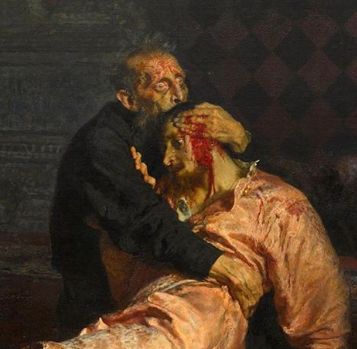



grief
breaking bad 02x13 // platonic love - eliza adler // dark paradise - lana del rey // the hunger games: mockingjay part II // francis forever - mitski // grey’s anatomy 02x27 // ivan the terrible and his son ivan - illya repin // somewhere only we know - keane // supercut - lorde // summertime sadness - lana del rey
#grief poetry#loss of a loved one#web weaving#harry potter#sirius black#lana del rey#mitski#the hunger games#primrose everdeen#greys anatomy#izzie stevens#ivan the terrible#stranger things 4#max mayfield#max x lucas#elmax#lorde melodrama#born to die
271 notes
·
View notes
Text
youtube
Mikhail Kuznetsov as Fyodor Basmanov in Sergei Eisenstein's Ivan the Terrible, Part II (1958)
#tbh i think this might be one of my favorite scenes in any movie ever#anyway just a russian tsar and his evil boy toy <3#ivan the terrible#иван грозный#sergei eisenstein#Youtube
10 notes
·
View notes
Text
Nicholas II’s little known third brother: Alexander (1869-1870)

Up until the early 20th century infant mortality in Imperial Russia was among the highest in the world. Many a family lost at least one child either during childbirth or disease. Infant mortality was something that did not discriminate, regardless of one’s position in life, including members of the Russian Imperial Family.
Grand Duke Alexander Alexandrovich was born on 7th June (O.S. 26th May) 1869. He was the second child, of the then Tsesarevich Alexander Alexandrovich (future Emperor Alexander III) and Tsesarevna Maria Feodorovna (future Empress Maria Feodorovna, née Princess Dagmar of Denmark).
Alexander was the younger brother of the future Emperor Nicholas II, and third in line to the Russian throne at the time of his birth.
Sadly, the “Angel Alexander” did not live a full year, he died of bacterial meningitis, one month before his first birthday, on 2nd May (O.S. 20th April) 1870, age 10 months and 26 days.
The doctors who observed the infant – obstetrician Jacob Schmidt, pediatrician Karl Rauchfus and surgeon Gustav Hirsch recorded the course of the disease in detail. They noted that on the night of 15/16 April, after the secondary flu which infected the child’s right lung, signs of acute damage to the meninges appeared. On 17th April, there was a “slight improvement in the patient’s condition”, on 18th April – “a feverish state of moderation”, on 19th April – “for the most part he was conscious”, but the next day there was a deterioration and sudden death. Tsesarevich Alexander wrote in his diary: “God, what a day You sent us and what is this test that we shall never forget to the end of our lives? Be it Your Will Lord and we shall conciliate before You and Your Will.”
“The doctors maintain he did not suffer, but we suffered terribly to see and hear him,” Maria Feodorovna wrote to her mother, Queen Louise of Denmark.
Grand Duke Alexander was sketched on his deathbed by the famous Russian portrait artist Ivan Nikolaevich Kramskoi (1837-1887). The only photograph of the “Angel Alexander”, was taken by his parents posthumously.
Sergei D. Sheremetev, the adjutant to Tsesarevich Alexander, accompanied the infant’s body on horseback to the Peter and Paul Fortress in St. Petersburg, where he was buried in the SS Peter and Paul Cathedral. The infant Grand Duke Alexander Alexandrovich was laid to rest in the northern nave of the Peter and Paul Cathedral in a tiny white marble sarcophagus. On the upper edge of the sarcophagus there is a gilded cross made of bronze, on the side there is a bronze plaque with an epitaph inscribed on it
Alexander’s death was the first of many personal losses which the Empress Maria Feodorovna would endure before her own death in 1928. She outlived her beloved husband “Sasha”, her parents, her sister Alexandra, all four of her sons, and five grandchildren.
#maria nikolaevna#grand duchess xenia#zar nicolás ii#nicholas ii#tatiana nikolaevna#the romanovs#xenia alexandrovna#romanov#tsarina alexandra#grand duchess olga#farah diba pahlavi#grandduchessoganikolaevnaromanova#grandduchessolganikolaevna#olganikolaevnaromanova#olganikolaevna#grandduchessanastasianikolaevna#anastasianikolaevna#grandduchessmarianikolaevna#marianikolaevnaromanova#marianikolaevna#tatiananikolaevnaromanova#tatiananikolaevna#grandduchesstatiananikolaevna#tsarevichalexeinikolaevich#alexeinikolaevichromanov#alexeinikolaevich#dagmarofdenmark#mariafeodorovna
32 notes
·
View notes
Text
The more i read F&B, the more it is obvious that the dance of the dragons is the main event of the books, and it is by far the one George put more effort in developing. It is one of the few parts that has three different chroniclers and takes the time to develop the characters and event give full background of at least two or three decades prior to the dance with such great in deep. I am not whining (i totally am) but imagine if the other parts of the book had this same level of in deep dedication. Imagine the conquest from the pov of a knight from the last Gardener kings a lá Jon Connington with Rhaegar, or from a Dornish Maester, or even from a Maester who was in service at Dragonstone and knew Aegons, Rhaenys and Visenya from before the conquest. It would certainly portray the trio in a different light other than this mythified figures that F&B paints them. Or even in Aenys and Maegor's reigns. Some of the monarch tyrannts were often pointed as crazy caused by a sickness (see Ivan the terrible and Caligula), even the ones who were not tyrannts and yet, they were not good kings (Charles II of Spain). It could be of good use if some maesters began the theories of incest = bad health and state of mind, if they saw how both Aenys and Maegr were bad kings, one given to cruelty and sadism and other one weak of health and mind and the parents of both of them were brother and sister(s).
#Please please please can we give Maegor some delusions of persecution PLEAAAASEE#aND GIVE AENYS MORE BAD HEALTH#valyrianscrolls#asoiaf#maegor targaryen#maegor my babygirl#maegor the cruel#aenys targaryen
15 notes
·
View notes
Photo



Иван Грозный / Ivan The Terrible, Part II: The Boyars' Plot
Sergei Eisenstein. 1958
Church
Ascension Church. Andropova Ave, д. 39, стр. 1, Kolomenskoye, Moscow, Russia, 115487
See in map
See in imdb
#sergei eisenstein#иван грозный#ivan the terrible#the boyar's plot#moscow#nikolay cherkasov#church#kolomenskoye#horses#russia#nagatinsky zaton#petrok maly#movie#cinema#film#location#google maps#street view#1958
21 notes
·
View notes
Text

a collection of my r.aven tail headcanons that i finally need to put Out Into The World
i. formed in X774, less than five years after ivan and rabastan were excommunicated from fairy tail. ivan was not with rab in that time.
ii. yes, it's there to be against fairy tail. however, it is also accidentally home to a lot of misplaced and normally ostracized people. a guild of people who were ostracized as peers, has magical abilities and wants a place to earn money and sleep. thats how you get people like nullpudding, who looks part blowfish but isnt a terrible person and then... kurohebi...
iii. its not an obligation to hate fairy tail to join raven tail. its just that upper management has quite the bone to pick with the GM of fairy tail. but in canon, we have seen some shady things from makarov so its not a stretch to say people affected by fairy tail and their decisions in a bad way tend to gather at raven tail.
iv. when they were a ~dark guild~, it was mostly that they weren't technically legal. they still operated like a normal guild does. they weren't out attacking people for money or anything. in fact, the towns around them often went to them because they knew they could trust the mages in raven tail to help them out. it wasn't always legal but none of it was actively harmful to entire communities. it's a big part of the reason why they weren't on such a high priority list for the council and how they were able to become legal when ivan finally did the paperwork. when he does that is dependent if its an au or not but in more closely related canon aus, it happens in X790.
v. speaking of the towns around them: there are three, as seen on the map below and where they are re: raven tail's location.

vi. raven tail's location, up until they become legal is quite hard to track. ivan did this for obvious reasons. the reason being is that there are several illusioned raven tails around fiore for some time, set up by ivan. the one gajeel was at was once such illusion. it is harder to keep them up, but ivan switches where he puts them and tends to just hang out for a day in those areas. when gajeel found him, it was in such a place. before, in order to even see the Real raven tail, you needed the stamp. now, you still need the stamp to enter ivan's office and the private room area of the guild; but you can always see it. due to some guild regulations ew.
vi. during the war, raven tail took it upon themselves to help the evacuation of the three nearby settlements. they were able to move most of the citizens to their mountain base, safe away from a lot of the fighting. however, people were still lost due to the magnitude of alvarez's invasion. in a way, they benefited from the invasion being across the country. until, of course, universe one.
vii. there are flocks of ravens and crows around raven tail. they're sort of guild pets in a way that everyone, but mostly ivan takes care. the oldest two follow ivan just about anywhere if hes lets them and seem to have an uncanny healing abilities. ivan has yet to publicly comment on that.
viii. when it comes to sorcerer weekly, ivan tends to let his mages do what they want as long as they're not making fools of themselves. that's all he asks for. i'd say he's more or less open to interviews because he thinks thats a great way to get under makarov's skin.
#🕊: and so — the murder has come / raven tail#🕊: if you think you can save me — i’d dare you to try / hc
8 notes
·
View notes
Text
Unsaid-Verse Masterpost
Because it’s been a while since I updated it. Because there might be new people around who would like to read it. Because my mind won’t cooperate with me today, so I’m trying to distract it.
So, the Unsaid-Verse: my little coming-back-to-fanfic, post-fete-surprise-baby story that by now has grown into a nearly 140K words long massive AU verse. Romance, fluff, humor, occassional angs galore.
The following list has the stories in chronological order, with early fall of 1879 being the date when Alina arrives at the Little Palace.
Socks
Fall 1879
Rated: G
Wordcount: 3086
After a chance meeting in the middle of the night in the hallway of the Little Palace, Aleksander invites Alina to the stables to oversee the birth of a foal with him.
Violent Delights
February 1880
Rated: E
Wordcount: 9767
Aleksander and Alina get intterupted a little later, so they have a nice, passionate lovemaking session before everything goes shit.
Terrible, Beautiful, Unsaid Things
February-November 1880
Rated: T
Wordcount: 11064
Alina still runs after the fete, and she is still caught, only, in this universe, she is pregnant. Spanning from her escape to the birth of their child, the story chronicles how she and Aleksander find their way back to each other
Thicker Than Water
February-November 1880
Rated: M
Wordcount: 3585
Alina’s suprise pregnancy brings up bitter memories in Genya, who is determined to help her through it–including giving her the freedom of choice.
Poker Face
April-November 1880
Rated: M
Wordcount: 11060 (WIP)
Aleksander is fighting a war on several fronts: the actual war against Fjerda and Shu Han; to win back Alina’s affections; and to keep the Tsar in line. This last one might be the hardest. Or: Aleksander is showing considerable restraint in not unleashing The Cut on Pyotr Lantsov.
Secret Ingredient
July 1880
Rated: G
Wordcount: 2735
Alina is missing her mother’s cooking, which at least give Aleksander an opportunity to do a Grand Gesture.
A Person to Call Home
Early November, 1880
Rated: T
Wordcount: 3439
A few days before Nadya’s birth, Aleksander wakes from a nightmare and seeks out Alina just to reassure himself that she is alright.
The First Star in the Black Velvet Night
November 6, 1880
Rated: T
Wordcount: 8099
The day Nadya, their child is born, from Aleksander’s point of view.
A Little Star in the Night
November 6, 1880
Rated: G
Wordcount: 3156
Due to ALina’s weakened state after the labor, a wet nurse is summoned to the Little Palace
Sleepless
November 7, 1880
Rated: G
Wordcount: 1233
The day after the birth, Alina finds it hard to fall asleep without her daughter nearby
Tales from the Palace
November 1880/1882/1887
Rated: T
Wordcount: 3685
Collection of one-shots featuring characters peripheral to Alina and Aleksander’s story: a chambermaid, a dressmaker, and a governess.
To Cherish and to Hold
October and December, 1880
Rated: E
Wordcount: 14429
In Part I, with their relationship slowly blooming again, Alina decides it’s time for her to be intimate with Aleksander again. In Part II, they return to their marital bed after Nadya’s birth.
The Heartrender and the Baby
February 1880 - May 1882
Rated: G
Wordcount: 5771
Ivan is definitely not a baby person. Then a little Princess has him wrapped around her little finger
Life Unfolds in Chapters
Summer of 1882
Rated: E
Wordcount: 21463 (so far)
The summer after Aleksander and Alina took the throne of Ravka, they go on a royal tour in West Ravka, while facing political and personal challanges
Sister, Sister
September 1882 - December 1884
Rated: G
Wordcount: 2297
Nadya is a happy little girl who loves her Mama and Papa very much. However, her life turns upside down when she learns that she is going to be a big sister.
The Sweetest Dreams I have of You
October 1882
Rated: G
Wordcount: 1355
Aleksander catches Alina, pregnant with their second child, taking an afternoon nap.
Infinite
Fall 1882
Rated: T
Wordcount: 1461
Preparing for the birth of their second child, Alina and Aleksander share their fears and insecurities with each other.
Solstice Eve
December 1882
Rated: G
Wordcount: 3621
Aleksander has a surprise for his girls for the holiday, starting a new tradition.
Modern Times
November 1883
Rated: G
Wordcount: 2423
When expresses reluctance towards one of David’s newest inventions, Aleksander is accused of being “set in his ways,” so he goes to desperate lenghts to prove that he can, in fact, handle change.
Private Meeting in the Tsar’s Study
November 1884
Rated: E
Wordcount: 2992
Aleksander and Alina work on expanding their family–in his office, in the middle of the day.
Witches!
1885
Rated: G
Wordcount: 922
After a bad dream, little Nadya seeks her parents’ comfort
Grishenka
April 1885
Rated: G
Wordcount: 1300
Nadya summons for the first time, and Sasha is conflicted.
David and the Terrible, Horrible, No Good, Very Bad Day
Fall of 1885
Rated: G
Wordcount: 2101
David is not good with children, that’s a fact. And yet he is tasked to look after Nadya–who is too clever and mischievous for her own good–for a couple of hours. Let’s just say it doesn’t go well.
Just a Tiny Prickle
1886
Rated: T
Wordcount: 1819
Nadya wants to have her ears pierced. Her Papa is not thrilled about the idea.
Conquering the Foul Beast
Summer of 1889
Rated: G
Wordcount: 1920
Being the father of girls means sometimes playing the role of the “foul beast” and being hit on the head with cushions.
A Longing Deep and Profound
December 1887 - February 1891
Rated: M
Wordcount: 6074
After the birth of their fourth daughter, Aleksander thinks they should not have any more children. Alina is not that convinced.
In a Mirror, Brightly
November 1896
Rated: G
Wordcount: 1543
Nadya is about to turn sixteen. Aleksander does not handle it well.
17 notes
·
View notes